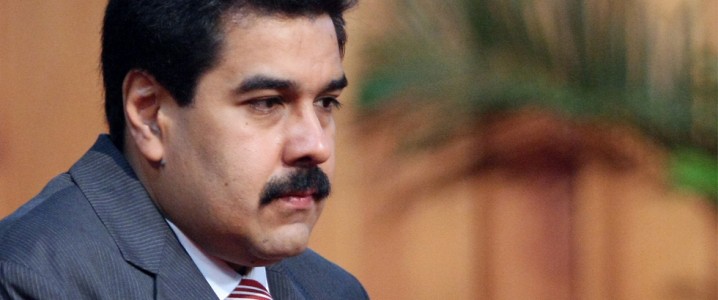

Venezuelan President cum dictator Nicolas Maduro has announced that his nation is set to increase its oil exports to China to a staggering one million barrels per day (bpd) over the next months. Returning from a trip to China, Venezuela’s greatest foreign financier, Maduro also said that each nation plans to invest “around five billion dollars” into this initiative by August of next year.
Additionally, Maduro announced that he sold nearly 10 percent of shares in Sinovensa, a joint venture partly owned by state-owned China National Petroleum Corporation (CNPC), to an undisclosed Chinese oil company. This will bring China’s stake in the company to a total of 49 percent. Maduro said that the sale will play a role in his plan to invest $5 billion into Chinese projects in the effort to double oil production and bump exports to China to a million bpd.
Venezuela’s oil production is currently at its lowest point in 60 years thanks to a lack of investment and shoddily maintained infrastructure. Although Maduro did not disclose the amount the Venezuela made in this sale, it is known that his sole reason for the trip to China was to secure additional funds for his bankrupt government. It’s not known whether he was able to secure any new or extended lines of credit.
Venezuela, which sits on the largest proven crude oil reserves in the entire world, is currently exporting around 700,000 bpd to China. Maduro spend two days in China last week to meet with President Xi Jinping and attend meetings at the China Development Bank and the China National Petroleum Corporation. Maduro told foreign media that Zhang Jianhua, president of the China National Petroleum Corporation, will make a reciprocal visit to Venezuela this week to finalize their investment agreement.
Over the last decade Venezuela has been the recipient of more than $60 billion in Chinese credit, and still owes about $20 billion. They’ve since been repaying this debt with hefty oil shipments. In 2016, China lightened the conditions of Venezuela’s debt repayments in response to the latter’s political upheaval and grueling economic collapse in the midst of falling oil prices.
Though Maduro was questioned about whether the lightened conditions would be extended following his summits in China, the Venezuelan president refused to comment, saying simply that “Venezuela pays its debts on time, it’s shown in the most difficult moments its ability to respond to its Chinese commitments.” While there is a rumor that Maduro secured a further US$5 billion in loans from China last week, he refused to comment on this account as well.
While it is known that Maduro also made a stop in Istanbul last week, it is furthermore believed that he met in secret with Turkish President Recep Tayyip Erdogan. Photos of Maduro enjoying a lavish meal and a cigar at a trendy restaurant in the Turkish capital, taken by a local celebrity chef, inspired major outcry on Venezuelan social media, as the vast majority Maduro’s citizens go hungry among extreme food shortages and an inflation rate soon to hit a jaw-dropping one million percent.
While many of the details of Maduro’s visit remain foggy, what is certain is that the relationship between Venezuela and China has not suffered in the face of economic turmoil. On twitter Maduro claimed that over the course of his visit Venezuela and China signed a total of 28 agreements, adding to over 700 development projects that the two nations currently share over various fields. Maduro also said that he can depend on China as an ally in the “economic war” that he believes the United States to be waging against Venezuela. His accusations are not unfounded–U.S. President Donald Trump’s administration has directed several rounds of sanctions against Maduro’s regime.